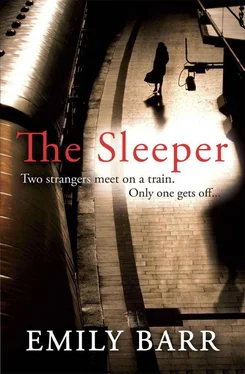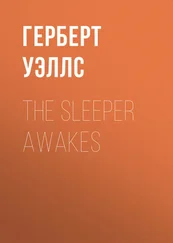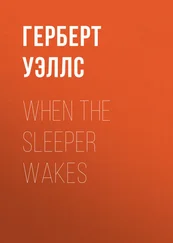Sam wanted a baby because he’s a normal human being. I wanted a baby because it felt like the best chance I was going to get, now, of loving someone passionately and all-consumingly.
I stare at him asleep in the soft morning light. This is so intimate that I feel I shouldn’t be doing it, but I prop myself on my elbow and carry on. He is vulnerable, unconscious, and I remind myself to think only kind thoughts since he is unaware of me.
He will be asleep in this bed on his own six nights a week for six months. After that, surely, we will know what to do.
If I left, I tell him silently, you would meet someone else in no time. You would meet the kind of woman you need. You might end up having a child with her, because there is nothing wrong with your sperm count. There is nothing wrong with any of my bits either, supposedly. It simply never happened.
You should never have married me. I send that fact into his head, using telepathy. You would have been happy with a wife who adored you, not someone who clung on to you like a life raft on a stormy sea and then wished she could cast you aside and move on when she reached land. By that point, it was too late. I should, as ever, have listened to Leon’s advice. Leon warned me not to marry him.
‘He’s great for you right now,’ he said, after his first meeting with Sam. ‘But for Christ’s sake, Lara. Don’t marry him. He’ll bore you senseless because he’s too nice. Like that Olly bloke, but at least this one wouldn’t do the dirty on you. You’d end up doing it on him.’
He was wrong about that part, at least.
More and more, I find myself imagining the woman he should be with. I try to picture his second wife. I looked at Iris today, wondering if she would do, but I knew she wouldn’t. Iris has a boyfriend, but she also has secrets. She keeps huge parts of herself hidden. Sam needs a wife who has as few demons as he does.
The ideal Mrs Finch would have had a happy childhood, and she would not be professionally ambitious. She would be longing to dedicate herself to her family, and she would enjoy looking after the house. She would be organised and appreciative and she would think Sam was the sexiest, most fascinating person ever born.
She and I would not be friends.
I have, intermittently, attempted and pretended to be her. Nowadays I find myself seeking her out, like women in magazine articles who know they are going to die and start looking for their husband’s next wife and their children’s new mother before they go. It is weird when they do it, and it’s even weirder of me, what with us being happily married and everything, and also because of the fact that the children never existed.
I wish I had a reason to leave. I wish I could accept that I have a handsome, caring, lovely husband who adores me, and settle down. I need one or other of those things to happen.
I will go to London. That way, things might shift and settle and be all right. Alternatively, we might drift apart and separate by mutual agreement, with no rancour or blame. This is the stuff my daydreams are made of.
I get out of bed as quietly as I can, and tiptoe upstairs to put the kettle on and watch the sunrise.
chapter three
September
Sam insists on driving me to Truro for my first Sunday-night train. He is so ostentatiously sad that I find myself, perversely, wanting to laugh. I would have preferred to go in on the branch line from the Docks station behind our house, but I could see that it meant a lot to him, and so I gave in quickly.
He is almost in tears when we say goodbye, at the ticket barrier at Truro.
‘You take care,’ he says. ‘OK? Promise me you’ll stay in touch all the time. I wish I could come with you.’
I smile and kiss him. ‘Don’t be silly,’ I say, mock-stern. I can be as nice as anybody now. ‘You work to pay the mortgage and the bills. I’ll work to pay off the credit cards. I’ll be back on Saturday morning. We’ll have a wonderful weekend. Every weekend. Sam! No being gloomy, OK? I won’t be here to cheer you up. Make sure you go out to the pub and all of that. See your friends. Go for a run. Keep busy, and I’ll be back before you know it.’
He buries his face in my hair. ‘Yes, miss,’ he says, with exaggerated meekness. ‘I know. And start the processes for adopting from abroad.’
‘Sure. Right. I’m going to go. There’s no point us standing here being sad. Bye, honey.’ He needs me to say that I love him. I know he does. He deserves to hear it. I cannot go without saying it. I draw in a deep breath. ‘I love you, OK?’
I say it quietly, into his shoulder, but his relief is horribly obvious.
‘Thank you, my darling,’ he says, and I can hear his smile. ‘Thank you.’
When the train draws in, I know he is still in the ticket hall, staring through the window. I find coach E, berth 23, its door open.
My little cabin is smaller than I expected, with just a bottom bunk (to my relief), a basin which I find under a lid, a mirror, a transparent bag containing toiletries, some bits of mesh stuck to the wall to put things in. There is a TV screen on the wall in the perfect position for lazy bed-bound viewing, and nothing else.
Everything about this tiny room is efficient and clean. The bed, made up with a surprisingly luxurious duvet with a crisp white cover, is narrow but pleasing. For a moment, I gaze around with nothing but the purest pleasure.
The blind is closed in preparation for the night. If I opened it, I would probably be able to see Sam through the window. He would be scanning the train, looking for me.
I close the door instead, and sit on the bed. With a little judder, the train starts to move.
It is ten o’clock. I have to be at work in the morning. I need to go straight to sleep.
There is a mirror on the wall, near the basin, and another on the back of the door. I look different, on the train. In Falmouth, I am a wife, not-a-mother, a nice woman who volunteers for things when she can drum up the energy and the requisite number of smiles. The moment I stepped on to this train, however, I became a commuter.
When someone knocks on the door, I am alarmed and annoyed. My first thought is that Sam has secretly booked himself on to the train to surprise me. I pray that he has not, and hate myself for it.
I open the door, because I can hardly pretend I’m not here. A woman with short curly hair and a ruddy complexion leans on the door frame, looking at her list.
‘Hello, my love,’ she says cheerfully. ‘Miss Finch, isn’t it? Yes? Can I just have a look at your ticket, darling? What would you like for breakfast, my love?’
I hand her the ticket and the reservation.
‘I get breakfast?’
‘Yes, of course you do.’
‘You know my name?’
‘On my list, darling.’
If I am on her list, nothing terrible will happen. I want to take her photograph and send it to Sam, to prove to him that I am in good hands. If I asked, she would probably let me.
Instead, I choose coffee and a croissant, knowing that they will be less appealing than they sound but certain, all the same, that they will do.
As soon as she leaves, I go down to the end of the carriage to the loo, squeezing past one person on the way, a tall man who is perhaps in his early forties. He has dark hair, and is tall and well built. He looks like a commuter too, and he gives me a warm smile as we pass, closer together than you would normally pass because the corridor is so narrow. Our bodies brush against each other in spite of my best efforts, and I hurry on, embarrassed.
I want to keep to myself on these journeys. Soon this will be a part of my routine, and I do not want to be having to stop and talk to people. This train could become a perfect decompression chamber between my two lives, two nights a week which involve neither work (nor, more specifically, staying at my sister’s flat, which is looking less breezily casual a prospect than it once did, as I rattle towards London) nor home, with all its guilt and determined loveliness.
Читать дальше










